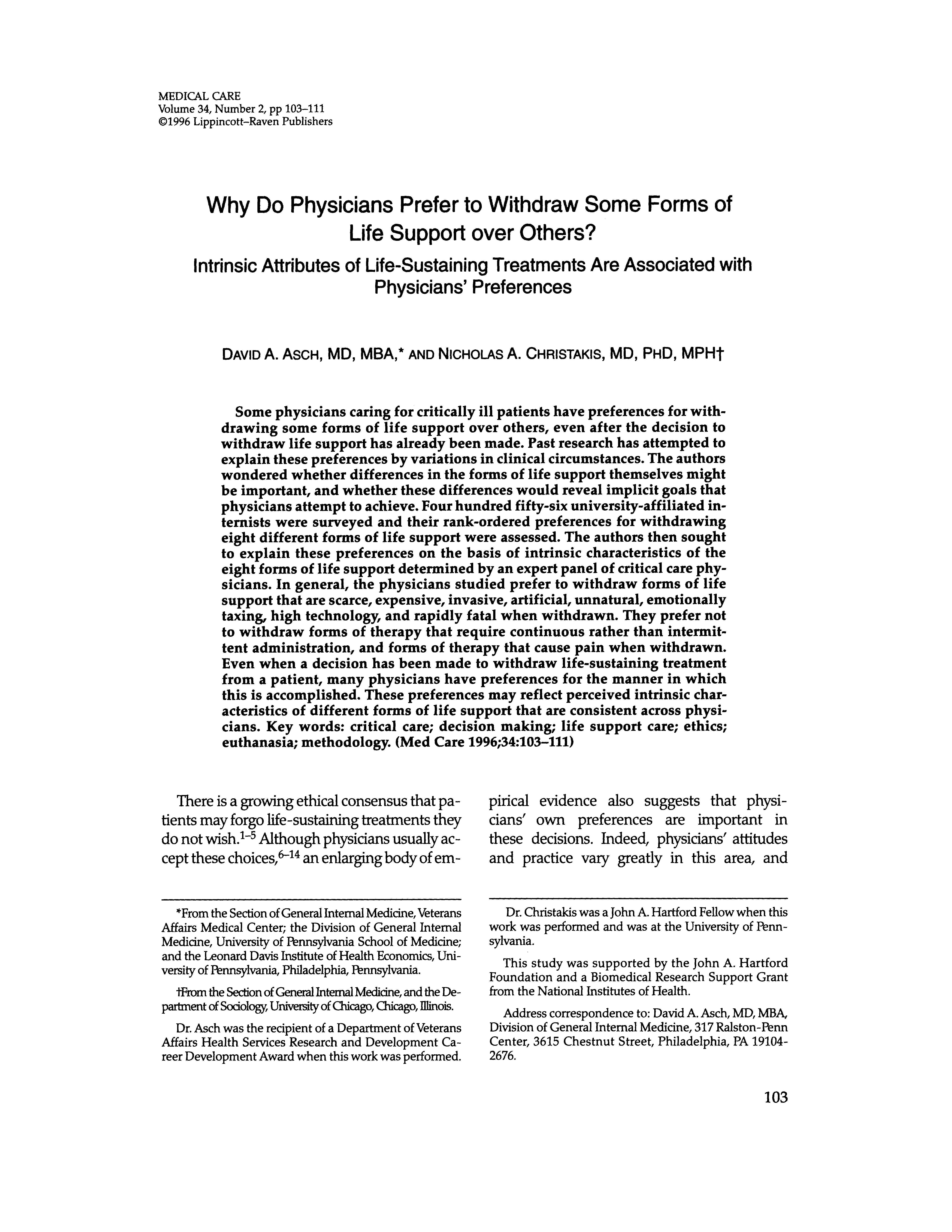
Why Do Physicians Prefer to Withdraw Some Forms of Life Support Over Others? Intrinsic Attributes of Life Sustaining Treatments Are Associated with Physicians' Preferences
Abstract
Some physicians caring for critically ill patients have preferences for withdrawing some forms of life support over others, even after the decision to withdraw life support has already been made. Past research has attempted to explain these preferences by variations in clinical circumstances. The authors wondered whether differences in the forms of life support themselves might be important, and whether these differences would reveal implicit goals that physicians attempt to achieve. Four hundred fifty-six university-affiliated internists were surveyed and their rank-ordered preferences for withdrawing eight different forms of life support were assessed. The authors then sought to explain these preferences on the basis of intrinsic characteristics of the eight forms of life support determined by an expert panel of critical care physicians. In general, the physicians studied prefer to withdraw forms of life support that are scarce, expensive, invasive, artificial, unnatural, emotionally taxing, high technology, and rapidly fatal when withdrawn. They prefer not to withdraw forms of therapy that require continuous rather than intermittent administration, and forms of therapy that cause pain when withdrawn. Even when a decision has been made to withdraw life-sustaining treatment from a patient, many physicians have preferences for the manner in which this is accomplished. These preferences may reflect perceived intrinsic characteristics of different forms of life support that are consistent across physicians.
Citation:
D.A. Asch and N.A. Christakis, "Why Do Physicians Prefer to Withdraw Some Forms of Life Support Over Others? Intrinsic Attributes of Life Sustaining Treatments Are Associated with Physicians' Preferences" Medical Care, 34(2): 103-111 (February 1996)